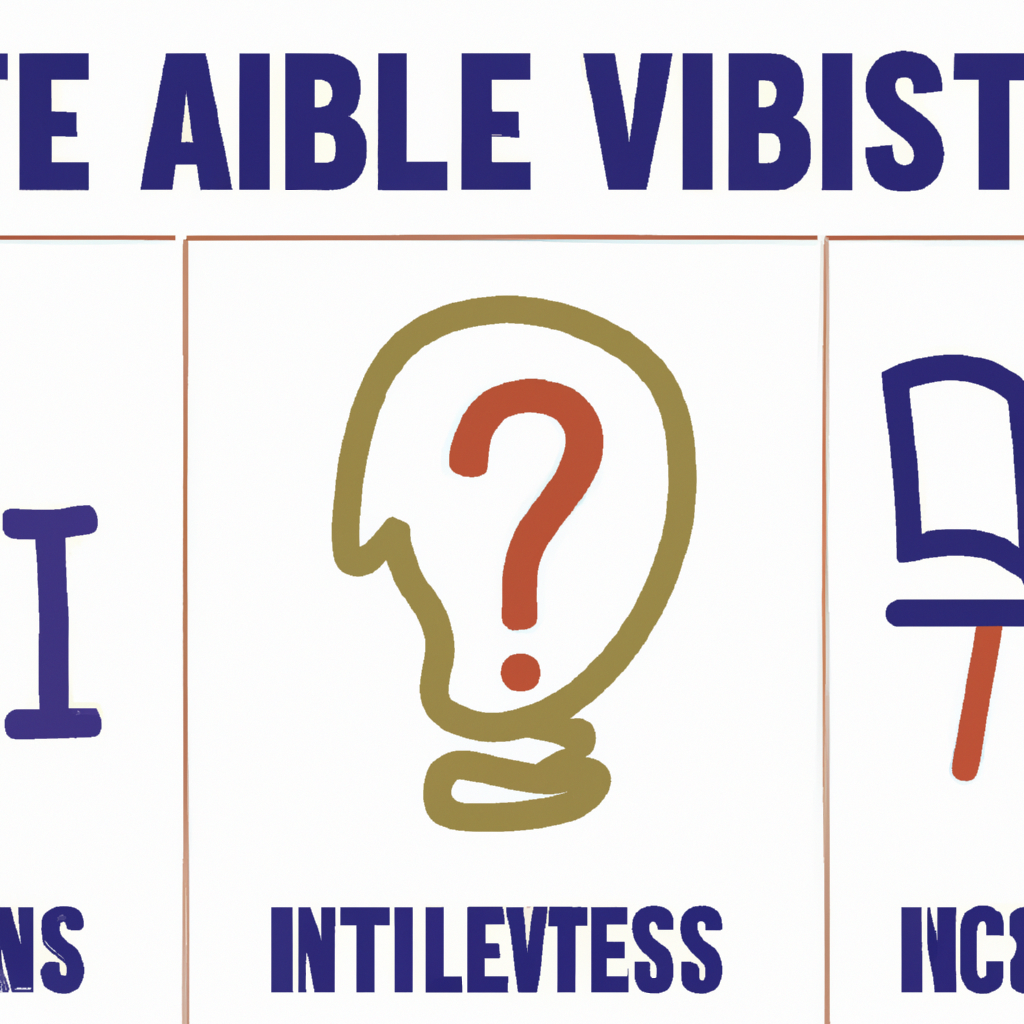In the vast tapestry of life, where our physical and mental worlds interlace, there exists a powerful symbiosis between sports and mental health. Like two celestial bodies engaged in an intricate cosmic dance, our bodies and minds weave together to create a harmonious existence. And yet, amidst the high-stress and relentless demands of the modern world, maintaining this delicate equilibrium becomes a formidable challenge. It is within the realm of sports, often seen as a sanctuary for physical prowess, that we uncover a profound opportunity to nourish our mental well-being. In this exploration of the intimate relationship between sports and mental health, we embark on a transformative journey, aiming to unravel the secrets of balancing body and mind, unraveling the profound tapestry of human existence.
1. The Invisible Battle: Unraveling the Deep-Rooted Connection between Sports and Mental Health
Sports have always been celebrated for their physical benefits. The thrill of competition, the rush of adrenaline, and the sense of accomplishment have long been attributed to their positive impact on our bodies. However, it’s time to delve deeper and shed light on the lesser-known, but equally significant, connection between sports and mental health.
1. Building resilience: Engaging in sports provides individuals with the opportunity to face challenges head-on and develop resilience. Whether it’s overcoming a defeat, pushing through physical exhaustion, or learning to manage the pressure of competition, sports compel athletes to develop mental toughness. These experiences can translate into the real world, allowing individuals to navigate life’s obstacles with more confidence and resilience.
2. Boosting self-esteem: A fundamental aspect of mental health, self-esteem can flourish through sports participation. Achieving personal goals, receiving recognition, and feeling part of a team contribute to a sense of self-worth. Regardless of skill level or athletic ability, sports provide individuals with a platform to feel proud of their achievements and increase their confidence, ultimately enhancing overall mental well-being.
3. Promoting stress reduction: In the chaotic whirlwind of daily life, sports provide a sanctuary from stress and anxiety. Engaging in physical activity releases endorphins, natural mood-elevators that combat stress and enhance overall mental well-being. Additionally, the social aspects of sports, such as bonding with teammates or sharing a common goal, can provide a sense of support and belonging, reducing feelings of loneliness and isolation.
4. Fostering mental discipline: Sports require focus, concentration, and discipline. Athletes must develop the ability to block out distractions, maintain composure, and make split-second decisions under pressure. These skills translate into improved mental discipline, enabling individuals to stay focused, set goals, and persevere not only in sports but also in their personal and professional lives.
It is evident that the connection between sports and mental health runs deep, extending far beyond physical fitness. By acknowledging and further exploring this invisible battle, we can unlock the tremendous potential of sports as a powerful tool in promoting and sustaining mental well-being.

2. Harnessing the Power Within: How Sports Act as a Gateway to Achieving Optimal Mental Well-being
They say a sound mind resides in a healthy body, and sports have long been recognized as a profound channel to attaining optimal mental well-being. Engaging in physical activities can do wonders for our mental health, shaping our outlook, and providing an avenue to unlock the power within us.
Here are essential ways that sports serve as a gateway to achieving and enhancing mental well-being:
1. Stress Relief:
Participating in sports allows us to release pent-up stress and tension. Exerting physical effort and concentrating on the game at hand diverts our focus away from daily concerns and helps clear our minds. Moreover, the release of endorphins during exercise promotes a sense of euphoria, reducing anxiety and aiding stress management.
2. Boosted Confidence:
Successes achieved in sports foster a sense of accomplishment, leading to increased self-esteem and confidence. By pushing our limits, facing challenges, and overcoming obstacles, we acquire a resilient mindset that transcends the sports field and extends to our daily lives. We learn the value of hard work, dedication, and perseverance, empowering us to face challenges head-on without fear.
3. Enhanced Focus and Mental Sharpness:
Playing sports demands focus and concentration, which in turn strengthens our ability to concentrate in various aspects of life. The regular mental exercises involved while strategizing, making quick decisions, and adapting to changing circumstances boost cognitive abilities, improving our memory and overall mental acuity.
4. Emotional Well-being:
Sports offer an excellent avenue to channel and express our emotions in a healthy way. The satisfaction of achieving personal goals, the camaraderie shared with teammates, and the enjoyment derived from both individual and team successes contribute to a positive emotional state. Engaging in sports not only promotes feelings of happiness but also helps alleviate symptoms of depression and anxiety.
5. Sense of Belonging:
Participating in sports creates a sense of community and belonging, whether it’s joining a team, attending matches, or supporting your favorite athletes. The shared experiences, friendships, and support networks formed through sports contribute to a stronger support system, providing a sense of inclusion and fostering a positive sense of identity.
3. Beyond the Physical: Exploring the Psychological Benefits of Engaging in Sports
Sports not only provide physical exercises but also offer a multitude of psychological benefits that go beyond the visible physical accomplishments. Engaging in sports has a profound impact on the mind, enhancing mental well-being, emotional stability, and cognitive function.
1. Improved Mental Health: Participating in sports helps alleviate stress, anxiety, and depression by releasing endorphins, the body’s natural feel-good hormones. The competitive nature of sports fosters a sense of achievement, boosting self-esteem and self-confidence. Moreover, the social aspect of team sports creates a support network, combating feelings of loneliness and promoting a sense of belonging.
2. Enhanced Emotional Well-being: Sports act as a powerful outlet for emotions, allowing individuals to channel their energies constructively. The adrenaline rush experienced during sports ignites a sense of euphoria, leaving athletes feeling exhilarated and energized. Additionally, engaging in regular physical activity improves sleep patterns, leading to heightened mood and increased emotional resilience.
3. Sharpened Cognitive Abilities: Participation in sports helps improve various cognitive functions. Complex sports activities require critical thinking, strategic planning, and quick decision-making. These mental skills developed on the playing field often transfer to other areas of life, such as problem-solving in academics and professional settings.
4. Enhanced Focus and Discipline: Sports demand unwavering focus and discipline, teaching individuals to set goals and work towards them meticulously. Athletes develop the ability to concentrate on the task at hand, blocking out distractions and increasing attention span. This enhanced focus also translates into higher productivity and efficiency in daily life.
In conclusion, participating in sports provides holistic benefits that go beyond simply improving physical fitness. The psychological advantages of engaging in sports are immeasurable, promoting mental well-being, emotional stability, and cognitive prowess. Whether it’s an individual or team sport, the lasting impact on one’s overall well-being makes sports an invaluable activity for individuals of all ages.
4. Striking a Chord: Embracing Sports as a Key Element in Balancing Mind and Body Harmony
Sports have always been a powerful tool for achieving harmony between mind and body. Engaging in physical activities not only keeps our bodies fit and healthy, but it also greatly impacts our mental well-being. Research has shown that participating in sports can help reduce stress, improve concentration, and boost self-confidence. By embracing sports as a key element in our lives, we can strike a chord that brings balance to both our physical and mental states.
One of the key benefits of incorporating sports into our daily routine is the release of endorphins, also known as the “feel-good” hormones. When we engage in physical activity, our bodies produce these hormones, which help reduce stress and anxiety while promoting a sense of happiness and relaxation. Whether it’s a brisk jog, a competitive game of basketball, or even a leisurely swim, these activities provide an outlet for releasing pent-up emotions and fostering a calmer state of mind.
Moreover, sports have the power to improve our concentration and focus. When we participate in a game or match, we are required to stay fully engaged and mentally present in the moment. This heightened level of concentration not only enhances our performance on the field but also carries over into our daily lives. By training our minds to focus on the task at hand during sports activities, we can develop a sense of discipline and clarity that can be applied to other areas of life as well.
Participating in sports also has a profound impact on our self-confidence and self-esteem. The sense of achievement that comes with mastering a new skill, hitting a personal best, or contributing to a team’s success can boost our belief in our own capabilities. This newfound confidence can extend beyond the sports arena and positively affect our interactions with others, allowing us to tackle challenges with a can-do attitude and believe in ourselves.
In conclusion, incorporating sports into our lives can be an instrumental tool for finding balance between our mind and body. By embracing physical activities, we allow ourselves to experience the numerous benefits they bring, such as reduced stress, improved concentration, and enhanced self-confidence. So, let’s seize the opportunity to strike a chord and create harmony by making sports an integral part of our daily routine.
As athletes, we’ve come to realize that prioritizing our mental and physical health is essential for achieving peak performance and staying at the top of our game. Flavorful nutrition, adequate and quality rest, and meaningful self-reflection all prove essential to successfully balance body and mind. With awareness, mindfulness, and focus, we can take careful steps to receive the best of both worlds that sports have to offer.




